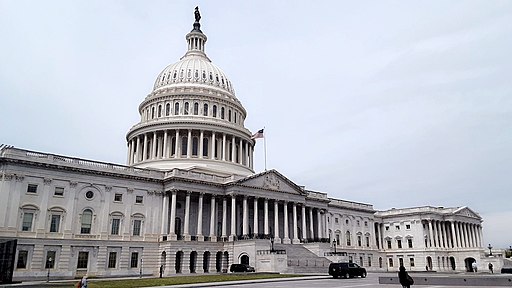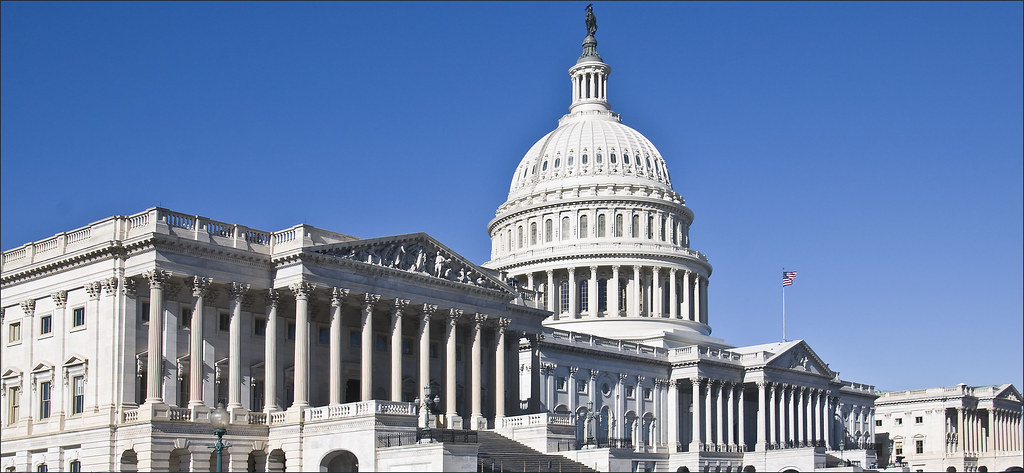Category: 2022 elections
-
Krishnamoorthi defeats Democratic primary challenger in Illinois’ 8th Congressional District

Incumbent U.S. Rep. Raja Krishnamoorthi defeated Junaid Ahmed in the Democratic primary for Illinois’ 8th Congressional District on June 28, 2022. According to unofficial results, Krishnamoorthi received 71% of the vote to Ahmed’s 29%. Krishnamoorthi was first elected to represent the 8th District in 2016. Before entering office, Krishnamoorthi was a partner at the law…
-
Casten defeats Newman in the Democratic primary for Illinois’ 6th Congressional District

Sean Casten defeated Marie Newman and Charles Hughes in the Democratic primary for Illinois’ 6th Congressional District on June 28, 2022. Casten and Newman are members of the U.S. House of Representatives running for re-election in the same district due to redistricting. The race was one of six U.S. House primaries with two incumbents running…
-
Giannoulias defeats Valencia in the Democratic primary for Illinois secretary of state

Alexi Giannoulias defeated Anna Valencia and two other candidates in the Democratic Party primary for Illinois secretary of state on June 28, 2022. Giannoulias received 53% of the vote to Valencia’s 40%. Giannoulias and Valencia led in media attention, fundraising, and endorsements going into the primary. David Moore and Sidney Moore also ran in the…
-
Sorensen defeats five other candidates in the Democratic primary for Illinois’ 17th Congressional District

Eric Sorensen defeated five other candidates in the Democratic primary for Illinois’ 17th Congressional District on June 28, 2022. Based on unofficial returns, Sorensen received 38% of the vote, while Litesa Wallace came in second with 23%. Incumbent Rep. Cheri Bustos (D) did not run for re-election. Sorensen, Wallace, Jonathan Logemann, and Angie Normoyle led…
-
Pam Anderson wins Republican nomination for Colorado secretary of state

Former Jefferson County Clerk Pam Anderson won the Republican primary for Colorado secretary of state on June 28, 2022, receiving 44% of the vote. Mike O’Donnell and Mesa County Clerk Tina Peters received 29% and 27% of the vote, respectively. Heading into the primary, Anderson and Peters led in fundraising and media attention. The 2020…
-
4.6% of state legislative incumbents who filed for re-election have lost in primaries

So far this year, 121 state legislative incumbents—20 Democrats and 101 Republicans—have lost to primary challengers. Across the 26 states that have held primaries, 4.6% of incumbents running for re-election have lost, more than in previous cycles. In addition to earlier primaries, these totals include initial results from primaries in Colorado, Illinois, New York, Oklahoma,…
-
Ezell defeats incumbents Palazzo in primary runoff for Mississippi’s 4th Congressional District

Mike Ezell defeated incumbent Steven Palazzo in the June 28 Republican primary runoff for Mississippi’s 4th Congressional District on June 28, 2022. In the June 7 primary, Palazzo received 31.6% of the vote, while Ezell received 25.1%. Both candidates advanced to a runoff because no candidate received more than 50% of the vote. Palazzo was…
-
Joe O’Dea wins Republican primary for U.S. Senate in Colorado

Joe O’Dea defeated Ron Hanks in the Republican Party primary for U.S. Senate in Colorado on June 28. O’Dea received 55.5% of the vote to Hanks’ 44.5%. Leading up to the primary, Hanks and O’Dea led in media attention, and O’Dea maintained a lead in fundraising. According to the most recent Federal Election Commission data…
-
Running in a new district, Rep. Rashida Tlaib (D-Mich) faces three primary challengers

Rashida Tlaib, Kelly Garrett, Shanelle Jackson, and Janice Winfrey are running in the Democratic primary for Michigan’s 12th Congressional District on August 2, 2022. Tlaib, the representative for Michigan’s 13th Congressional District, is running in the 12th District due to redistricting. U.S. Rep. Debbie Dingell (D), the district’s current representative, is running in the 6th…
-
Darren Bailey wins Republican nomination for governor of Illinois

Darren Bailey defeated Richard Irvin, Jesse Sullivan, and three other candidates in the Republican primary for governor of Illinois on June 28, 2022. Bailey is a state senator and farmer who was first elected to office in 2020. A campaign ad said, “In Springfield, Darren stood up for working families and fought against every single…

